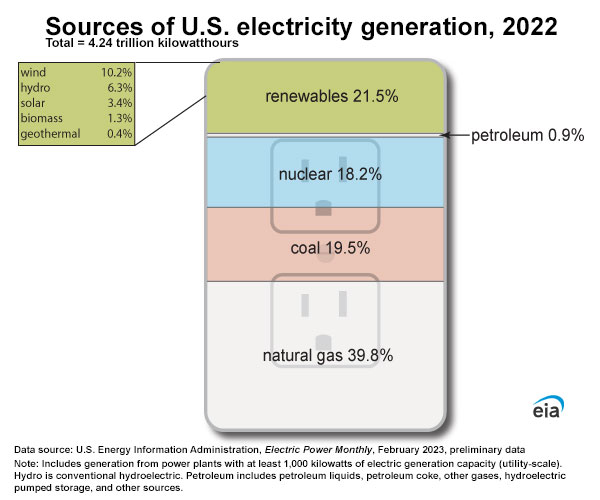This is beyond my skill set, but those I tend to drink beer with who live in this industry tell me the goal of an ambient superconductor is to replace existing electrical conductors, i.e., copper wires, etc. The main purpose being to eliminate/control resistive power loss/heat generation. And at the same time they're reducing the operating temperature for superconductors they are also developing methods to reform/shape them. I'm told to think of them as the "fiberoptics" of the electrical world. Can't offer any more than that.
When you say "who live in this industry". which industry do you mean? I'm assuming electrical transmission. I think you mean "increasing the operating temperature of superconductors".
I was just in the United Kingdom last week. The town of Nottingham has more solar energy produced on rooftops than I've seen in most of the USA. I sow solar on farm houses, too, looking outside the train windows. That's another way of getting around transmission losses- just produce power locally. If done properly, it can make for a very robust system as power can be distributed to other areas more easily.
I think it was Boeing that has already flew a hydrogen fueled aircraft but Airbus has been working several hydrogen based aircraft designs that combine hydrogen fueled turbines in conjunction with hydrogen fuel cells. Plus there are a half-dozen small companies pursuing the hydrogen turbine/hydrogen fuel cell route as well in the smaller aircraft market. There is a lot of "green" money behind these ventures with one entity looking to bring helicopters into the mix. While I don't know what you see on your chemical side, when it comes to the aviation side there is a lot of alternative propulsion research moving forward.
Yeah, Boeing has flown several hydrogen planes. Both fuel cell and conventional. They consider it a very long term solution. Someone pointed out to me here at PoA that hydrogen isn't a fuel- it is simply energy storage. One makes the hydrogen, and then uses it on site or elsewhere.
Here's an interview with Boeing's take on it:
https://simpleflying.com/boeing-no-hydrogen-focus/
Hydrogen is very light, but to get the same energy form a liter of gasoline, you need 8 liters of liquid hydrogen. You need a much larger volume of compressed gas. This link has more information:
https://www.energy.gov/eere/fuelcel... a mass basis, hydrogen,44 MJ/kg for gasoline.
Henning never could get around that inconvenient truth. People are working on ways to stuff more hydrogen in a tank such as adsorption on something- the link has some examples. Ammonia is one of those methods.
Ammonia is an interesting energy storage medium, but to make it, we still use the Haber-Bosch process the Germans invented to keep producing explosives after the allies blockaded them from getting saltpeter in world war 1. It's been improved since then, but it is still very energy intensive.
https://cen.acs.org/environment/green-chemistry/Industrial-ammonia-production-emits-CO2/97/i24
My opinion is that the biofuels will be used for commercial aviation. I was expecting that algae would start to produce the lipids we need, but except for Exxon-Mobile, that pretty much disappeared a few years ago. Exxon is still running research on it someplace.


